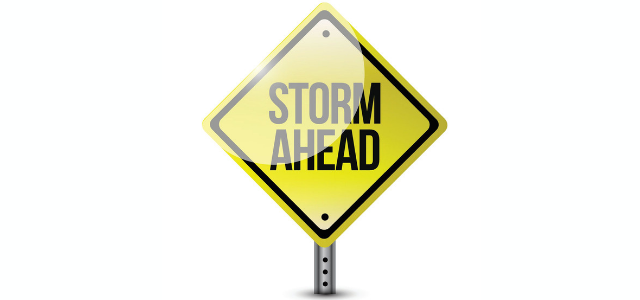Debt is not necessarily a bad thing when it comes to your credit score, but the problem comes in when it spirals out of control. How do you know that the debt obligations you have are being managed well, and what can you do to improve or fix your situation when you see that you are in for some serious financial damage? Well, the key is to be vigilant of the alert signs, be proactive in your financial ways and to make sure that you have a proper plan in place to keep your financials on track.
Did you know that your debt situation can basically be classified into four stages? When you find yourself in any debt phase or circumstance, you can lend yourself a hand by using an appropriate ‘debt evacuation plan’.
Here are the four stages of debt (note: most common but not limited to) as well as the recommended solutions thereof:
Stage 1: Your debt DISTURBANCE
This stage is also known as a ‘debt wave’. Now, what exactly is this debt stage all about? This a typical situation or state you find yourself in when your expenses begin to exceed your income. Perhaps you have started to use credit for your basic living costs like fuel and groceries lately? And, you can also see that you are moving to a position where you are going to skip a few debt payments in future.
Stage 1: Solution / Debt Evacuation Plan
So, how do you manage your debt if you find yourself in this so-called ‘Stage 1’ of debt? In a nutshell – go download your bank statements, print them out, highlight unnecessary things that you can start cutting out of your lifestyle (or budget). And, get rid of those luxuries and wants that are disrupting your current financial flow. These luxuries and wants include things like takeaway dinners or impulsive online buys for example.
Stage 2: A Debt DEPRESSION
Okay, so you are feeling miserable because you have cut out a few luxuries in your budget already and you are still not seeing any debt relief in your current financial situation?
Stage 2: Solution / Debt Evacuation Plan
Don’t you think you can scale down a bit more? At this stage of your debt, it is time to make some hard decisions and consider further cuts in your budget like considering public schools versus the kids’ current private school, for example. Or, what about taking another look at your current medical aid or insurance plan(s) and see whom can offer the same plan for a bit less? Some people also recommend the: ‘becoming a minimalist’ lifestyle that you should incorporate and, although, these examples sound a bit harsh – unfortunately, tough circumstances need hardcore solutions.
Stage 3: The Debt STORM
Are you currently being harassed by a storm of creditors? Then you are in the third stage of debt. You know you are going to experience some more trouble somewhere, somehow and perhaps you need just enough breathing space for a few months to get on track with your payments again.
Stage 3: Solution / Debt Evacuation Plan
Well, the best thing you can do to get rid of the never-ending harassment calls – is to try your best to negotiate with those relevant creditors. Remember: communication is the important key in your situation right now. Being responsible or proactive speaks volumes.
Stage 4: A Full-fledged Debt DISASTER ZONE
By now your debt situation is disastrous and you are past the point of negotiating with your creditors. The significant debt damage you have is bringing forth looming repossession or summonses, and perhaps you are struggling to put food on the table for the kids. Not to mention the debt stress you are experiencing – affecting your overall health.
Stage 4: Solution / Debt Evacuation Plan
How can you then escape from your severe debt situation? In South Africa, the National Credit Regulator (NCR) recommends a ‘debt evacuation’ program or plan called: Debt Review/Counselling/Consolidation. A registered Debt Counsellor’s service is, therefore, regulated and recommended for you and other individuals that are over-indebted and want to avoid losing your assets (like a house or vehicle).
Take note: If you are currently unemployed and/or receive no form of stable income (like rent etc.) – you will, unfortunately, not qualify for Debt Review. No creditor will accept a non-payment as a viable option during a Debt Counsellor’s negotiations with them. You can, however, negotiate with your creditors directly to see if they can offer you some sort of breathing space for a few months. Pay them as far as you can and do not stop looking for employment. If too much time passes and you still do not have a job they will summons you. You will then be able to explain to the court that you are unemployed, and you can ask the court to give you three to six months to find employment. Do not stay away and ignore the summons. Show up at the court and state your case.
Be sure to fix debt and stay on top of your finances. You can show debt the door by using a relevant and suitable ‘evacuation plan’ in your current financial situation.
